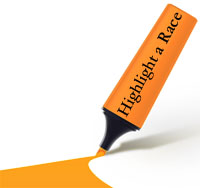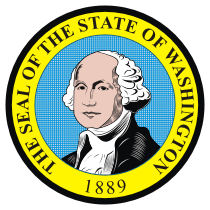Help us improve in just 2 minutes—share your thoughts in our reader survey.
JP Election Brief: All about appellate courts
May 24, 2012
by: the State Court Staff
Important date
Filing deadline
- May 25: Filing deadline for the Georgia general election
Check out Judgepedia's Election Central for details!
Montana Supreme Court race
With Montana's 2012 judicial primary around the corner, candidates are battling for votes. Candidate Ed Sheehy has accused fellow candidate Elizabeth Best of violating the Montana Code of Judicial Conduct by including endorsements from current officeholders on her campaign website. Best responded by removing the endorsements and saying their addition to the website was unintentional. Sheehy also criticized candidate Laurie McKinnon for using a letter from District Judge Nels Swandal, which endorsed her and solicited contributions.[1]
- “Judge McKinnon was required to take reasonable measures to not allow this to occur. With this activity by her or her campaign staff, it cannot be said that she is honoring the judiciary as a public trust or maintaining, enhancing, or striving to maintain confidence in our legal system.”[1] -Ed Sheehy
Best and Sheehy were criticized in a mailer, paid for by Montana Growth Network Inc. Best was accused of filing a environmentalist lawsuit which would, "seize control of the state’s atmosphere." Sheehy was referenced for his involvement in the "Christmas Day Killer Lawsuit." He dismissed the mailer as false and misleading.
The candidates:
- Elizabeth Best is an attorney at Best Law Firm in Great Falls, Montana. She served in the Judge Advocate General's Corps in the United States Army from 1981 to 1984. Best obtained a B.A. in political science from Montana State University and a J.D. from the University of Montana School of Law in 1981.[2] Best has emphasized her high peer rating and endorsements from former and current justices. She has also been appointed to serve the Montana Supreme Court commissions on civil procedure and evidence, and the Montana Federal Court Local Rules Committee.[1]
- Laurie McKinnon is a judge for the 9th District Court in Montana. Before taking her current position on the 9th District she worked as a deputy attorney in Teton County. McKinnon holds a Bachelor’s degree from Goucher College in Towson, Md. in 1982 and a J.D. from the University of Baltimore School of Law in 1986. She is currently pursuing a master’s and doctorate in Judicial Studies at the University of Nevada and the National Judicial College in Reno. McKinnon is the only judge running in this three way race. In a reference to the experience of her fellow candidates she said, “As a judge, I do not get the luxury of specializing in a particular area of the law, like my opponents.”[1]
- Ed Sheehy is an attorney with Office of the State Public Defender, a position he has held since 2006. Previously he served as a regional defender in Missoula. He worked as an attorney and partner for 27 years at Cannon and Sheehy in Helena. In 1978 he clerked for then-Montana Chief Justice Frank I. Haswell. Sheehy holds a bachelor’s degree in political science from Carroll College in 1974 and a J.D. from Gonzaga Law School in 1977.[1]
The two candidates with the most votes in the June 5th primary will move on to the November 6th election.
In the News
Arkansas Supreme Court race results
The race for the sole vacant seat on the Arkansas Supreme Court was decided in the Arkansas primary election this week. Judge Josephine Hart, currently serving a term on the Arkansas Court of Appeals, defeated her Court of Appeals colleague Raymond Abramson by a comfortable margin, taking 65.36% of the vote to Abramson's 34.64%.[3]
Interestingly, Judge Hart raised and spent less money on her campaign than Abramson, who was endorsed by both Democratic legislators and former Republican congressman Asa Hutchinson.[4][5] Judge Hart boasted that she ran more of a "grass roots" campaign.[5]
Abramson believes that he lost the election at least in part because Hart was identified as a judge on the ballot, whereas Abramson was not. Though both candidates currently serve on the Arkansas Court of Appeals, Abramson was appointed to his position in 2010, while Hart was elected to her position in 1998. Under Arkansas state law, "candidates can only put the title of a judicial office ahead of their name in an election if they're currently serving in a judicial position to which they were elected," which meant that Hart appeared as "Judge Josephine Hart" on the ballot while Abramson was listed as simply "Raymond Abramson." Both candidates acknowledge that being able to use the title "Judge" was likely an advantage for Hart.[5]
Abramson has not announced what he will do next following this defeat.[5] In January, Judge Hart will join two other women currently serving on the seven-member Supreme Court.[6]
No more matching funds for North Carolina candidates
On May 18, U.S. District Court Judge Louise Flanagan struck down parts of North Carolina's public financing program for outspent appellate court candidates. The program provides extra funds to help candidates who are outspent by privately-funded opponents.
Two committees representing the anti-abortion group North Carolina Right to Life argued against the matching fund provisions, pointing to a U.S. Supreme Court decision last year that struck down a similar program in Arizona. They said that it limits free political speech.
Judge Flanagan agreed with the committees, writing, "The court finds that the North Carolina matching funds statute is unduly burdensome and not sufficiently justified to survive First Amendment scrutiny."[7]
The decision was based on the precedent set by the U.S. Supreme Court decision. In that case, justices determined that such rescue funds did not help level the playing field or reduce corruption, as supporters of the provisions had argued.
The decision will not affect this year's elections, since the N.C. State Board of Elections had already decided not to offer any matching funds to 2012 judicial candidates. In the future, state Supreme and Appellate Court candidates may still receive some public funding assistance, since Judge Flanagan only ruled against portions of the program.[7]
Contested primaries set for Washington this August
With nine candidates filing for three seats on the Washington Supreme Court, and fifteen candidates filing for seven Washington Court of Appeals races, the August primary election will host much competition.
Supreme Court:
Justice Susan Owens has a term expiring in 2012. She has filed for re-election to the seat, but she may not coast to victory. She is challenged by Douglas W. McQuaid and Scott Stafne.
Justice Steven Gonzalez is running in his first election since his appointment in November 2011. He will be challenged by Bruce O. Danielson.
The most highly contested seat is that of retiring Justice Tom Chambers. Four candidates are competing for the open seat: Sheryl McCloud, John Ladenburg, Bruce Hilyer and Richard Sanders.
Court of Appeals:
Two seats on the appellate court will be contested this year. One, that of retiring Judge David Armstrong, is on Division 2, District 2. Six candidates have filed for that race: Pamela Loginsky, Thomas Bjorgen, Michael Lynch, Thomas E. Weaver, Jr., Jim Foley and Brendan Williams.
The other is on Division 3, District 3 and is held by Teresa Kulik. Kulik will be challenged by Devin Poulson this year.
The following judges are running unopposed for re-election to the court:
- Ronald Cox - Division 1, District 1, Position 4
- Marlin Appelwick - Division 1, District 1, Position 7
- Mary Kay Becker - Division 1, District 3, Position 1
- Christine Quinn-Brintnall - Division 2, District 1, Position 3
- Joel Penoyar - Division 2, District 3, Position 1
- Laurel Siddoway - Division 3, District 1, Position 1
All candidate filing data is from the Washington Secretary of State, Primary Candidate Filing.
Are you running for election?
If so, fill out our candidate information submission form and we will create a candidate page for you!
Footnotes
- ↑ 1.0 1.1 1.2 1.3 1.4 Helena IR, "Montana Supreme Court candidates trade shots," May 18, 2012
- ↑ Per information submitted to Judgepedia on a Candidate Information form
- ↑ Arkansas Secretary of State, 2012 Primary Election Results
- ↑ Arkansas News Blog, "Asa! Robocalling for Supreme Court candidate Abramson," May 18, 2012
- ↑ 5.0 5.1 5.2 5.3 The Republic, "Judge vying for spot on Arkansas Supreme Court lost to colleague who trailed in fundraising," May 23, 2012
- ↑ TalkBusiness.net, "Supreme Court, legislative races offer surprises, status quo," May 23, 2012
- ↑ 7.0 7.1 NECN, "Judge agrees NC matching funds provision unlawful," May 21, 2012
| |||||





